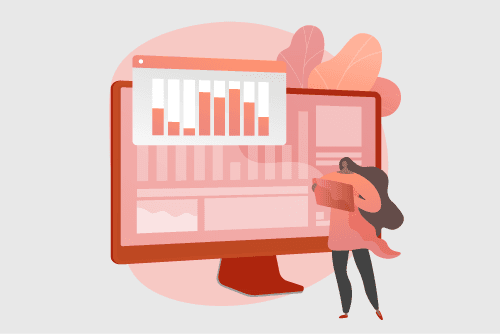How to Become a Certified Public Accountant (CPA): Make Your Next Move

Earning your CPA accreditation and becoming a certified practicing accountant will lead you to more job opportunities, employment flexibility and a higher salary.
Whether you’re already working in the financial sector or you’re looking to make a career change by gaining an accounting qualification, getting an edge in the competitive job market is a smart move.
As the Australian economy’s demand for financial services continues to grow, so does the need for its practitioners to participate in CPD practices (continuing professional development). Looking into accountancy upskilling opportunities, such as the CPA license, is a great way to raise your value to potential employers.
How to become a CPA in Australia
To legally use a CPA designation, there are a few things you need to do:
Get a degree
Complete a Bachelor degree in accounting, finance, business or another related field.
Work for three years
Complete 3 year of supervised work experience.
Pass the CPA Exam
Pass the national CPA exam with a minimum score of 75
To prepare for the CPA exam, you need to complete the CPA preparation course, consisting of 14 units. This course has four compulsory subjects:
To ensure exam eligibility, you need to apply with your state’s Board of Accounting. You will need to provide all relevant paperwork and proof of your practical experience.
What is a CPA?
An Australian certified public accountant is an accounting, finance or business professional who holds a CPA license. This license indicates to employers a high level of professional competency due to the CPA program‘s training obligations.
All CPAs are accountants, but not all accountants are CPAs.
CPAs have the professional flexibility to work in almost any financial role. They may work as financial advisors specialising in small businesses or progress in a corporation to become the chief financial officer (CFO). Where you take a CPA qualification is up to you.
Most CPAs work within the public accounting sector, providing services for clients within:
Business
Non-profit
Government
Individuals
Some CPAs enter the corporate accounting sector as a direct employee of a company. In this position, they may be referred to as a private accountant.
CPA skills and responsibilities
Generally, CPAs hold more responsibility and require a broader range of skills than your average accountant or bookkeeper, including:
CPAs work closely with people. Whether you work with business professionals, management teams or individual clients, all need clear, concise breakdowns of what the numbers mean.

“Obviously, understanding numbers is important. Understanding the business side, as well as the numbers, is vital to further your career. Also, understanding how to communicate and convey complex ideas in a simple to understand manner is pivotal.”
— Greg Mawer, Fellow of CPA
Accumulate Accountants and Business Advisors, Perth
Above all else, CPAs help organisations and people achieve their financial goals. Good communication and interpersonal skills foster this process.
Career pathways
There are many career growth opportunities in the finance industry. Many CPAs see themselves progress from general accountants to financial controllers, finance managers and senior accountant roles.
CPAs who choose to work for an organisation will work within the finance department. Usually, CPAs hold some of the more senior roles, such as:
Chief Financial Officer
Head of the financial department and reports to the organisation’s Chief Executive Officer (CEO).
Management Accountant
Head of management accounting sub-department and second in charge of the financial department. Prepares monthly, quarterly and annual management reports.
Financial Accountant
Reports to the CFO and is responsible for preparing and analysing all financial reports for accounting periods.
Salary and industry overview
Management accountants can start in this role on an average salary of up to $70,000. With experience, this salary can rise to as high as $121,000.
Financial accountants tend to learn slightly more in the first few years at an average salary of $70-80,000. With experience, the average salary can rise to $119,000.
Source: ABS Survey of Employee Earnings and Hours (cat. no. 6306.0), Customised Report.
Source: ABS Survey of Employee Earnings and Hours (cat. no. 6306.0), Customised Report.
Employment prospects for accountants are projected to grow by 10% between 2020 – 2024. Currently, this stable industry sees 80% of its workforce work full-time.
Career longevity is another benefit to this career pathway, with most of the workforce sitting between the ages of 25-54. Most industry growth is projected in Victoria, Queensland and New South Wales.
Starting your own business
We’ve covered opportunities for CPAs who work in-house for organisations. But what about starting your own business?
Starting your own financial service business offers you:

“The most rewarding part is being able to help people – it could be helping them out of a dire situation, or it could be helping achieve their goals.”
— Dr Adrian Raftery
Owner of Mr Taxman,
Author of 101 Ways to Save Money on Your Tax – Legally!
When you start your own business as a CPA, you can build close relationships with your clients and tailor your services to their needs.
“On occasion, running an accounting firm can be stressful. For example, COVID — where all clients need your assistance in a short period.”
— Greg Mawer, Fellow of CPA
Accumulate Accountants and Business Advisors, Perth
Prepare for possible peaks and dips in your workload. For example, COVID-19 saw a massive spike in demand for financial services and advice, placing more stress on our accountants and financial professionals.
Please note that you need to hold a Public Practice Certificate (PPC) to provide public accounting services in Australia or New Zealand.
“Accountants are the unsung heroes as they have helped so many small businesses — because the epidemic in Australia has become more of an economic crisis than a health one.”
— Dr Adrian Raftery
Owner of Mr Taxman, Author of 101 Ways to Save Money on Your Tax – Legally!
Becoming a CPA ensures not only professional development, skill improvement and financial security. It also gives you the chance to discover alternative career pathways you may have never even considered!
Feel fulfilled and challenged in your finance career — and look forward to possibilities of growth.
If becoming a CPA sounds like something you’re ready to do,
consider your further study options.
